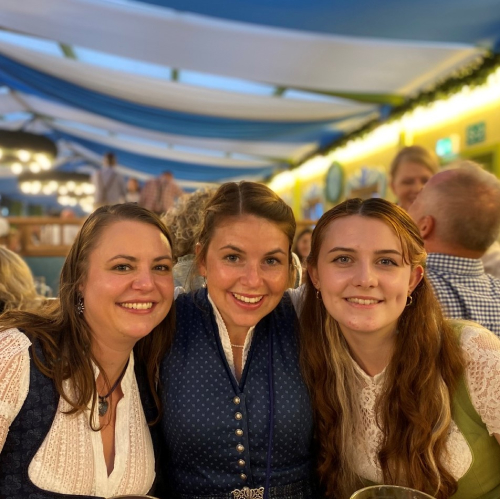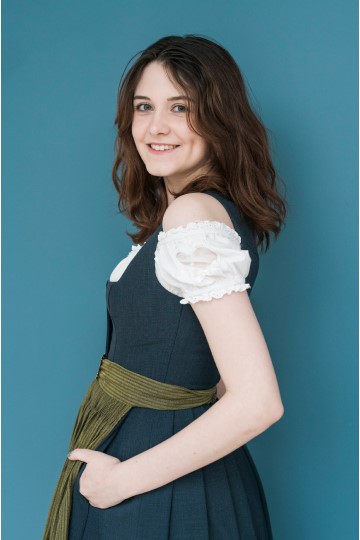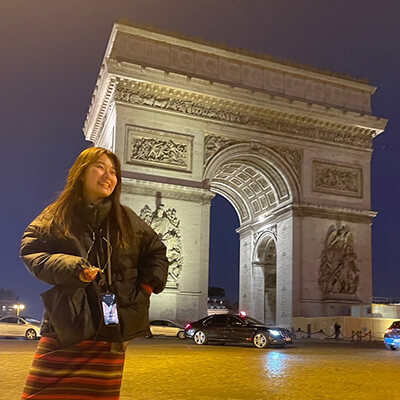2min read
Lea is from southern Germany. She is friendly, bright, and always smiling. Recently, Octoberfest has been a topic of interest. Originating in the 18th century, Octoberfest was a 6-day festival in which the king served beer to the people to celebrate his marriage, and it is held for a month from September to October. Last year, Lea participated in this festival with her family. Though the festival is well-known for its beer, the dirndl, a traditional garment worn by the participants, shines even brighter.
The word dirndl’s origin carries the meaning of “young lady,” but it was originally a work uniform distinguishing the occupations and social status of the people of the fief.
In the position of the knot on the apron ribbon, there lies a secret. If when viewed from the front, the knot lies on the right side, it means unmarried, and if on the left side, married. If in the middle, the presence or absence of a lover is unspecified.
As they were once worn by a female Nazi party members, Germany has shunned the dirndl in the past. But today, young people are revisiting this garment and various ideas have been added to the feminine design. Because it conveys tradition and identity, the dirndl is worn at events and is even popular as a wedding dress.
The dirndl is similar to the Japanese kimono. As it is difficult to put on and maintain, there was a tendency of abandoning these clothes, but us young people believe we can style them freely and wear them casually. Even if they stopped being a part of everyday life for a time, there is no denying the attractive costumes of your home country.
If you ever happen to participate in Octoberfest, why not try wearing a dirndl? You may just meet the person of your dreams.

BAUMGAERTNER LEA
Graduate School of Asia Pacific Studies (GSAM)
Germany
(Published in the morning edition of the Oita Godo Shimbun on March 28, 2023)
Based on a comprehensive cooperation agreement with Oita Godo Newspaper, since January 2022, Student PR Assistants (SPA) have been contributing their interviews with international students to the life and culture section of the newspaper’s morning edition. SPA will introduce different cultures and the interesting topics they raise from an authentic, student perspective. These student writers take this opportunity to get the newspaper’s readership and students interested in the world as well as aim to improve their skills with the aid of professional editors.
Mizuho Ueno
Hello, everyone! My name is Mizuho, and I am a 4th year student in the College of Asia Pacific Studies. My hobbies are dancing, getting in touch with nature, and playing with animals! I used to do aikido, so I'm strong! :) I hope to interact with many people through SPA activities! (Graduated in March 2025)













